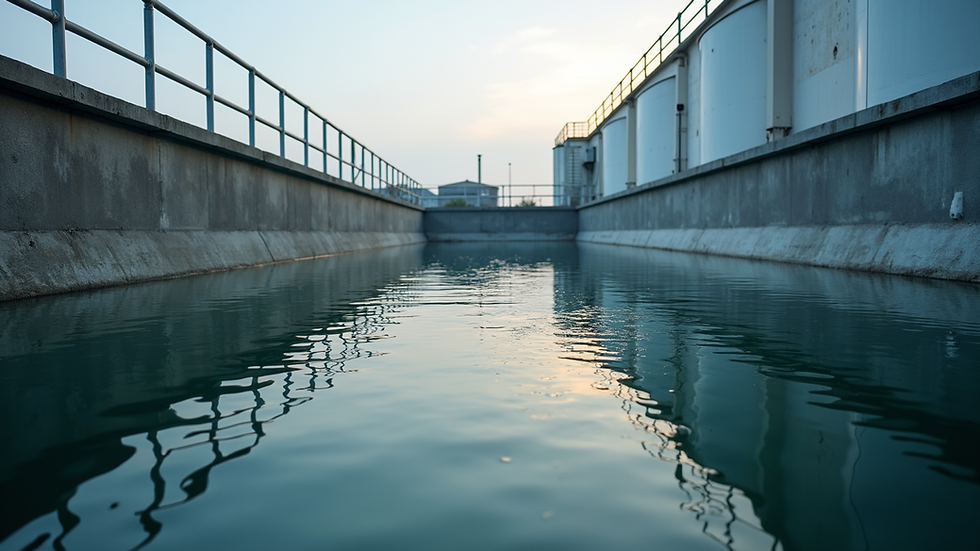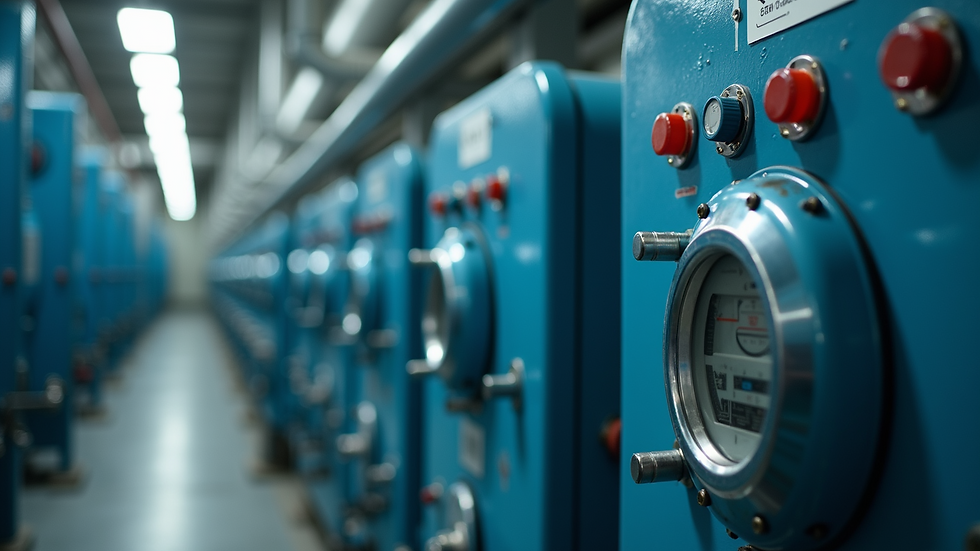Transforming Industrial Wastewater Challenges into Solutions
- palwinder kaur
- Aug 22, 2025
- 4 min read
Industrial wastewater is a significant environmental and operational challenge faced by many industries worldwide. The discharge of untreated or poorly treated wastewater can lead to severe environmental degradation, regulatory penalties, and increased operational costs. However, with the right approach, these challenges can be transformed into effective industrial wastewater solutions that benefit both the environment and the industry. This article explores practical strategies, innovative technologies, and actionable recommendations to address industrial wastewater issues efficiently.
Understanding Industrial Wastewater Solutions
Industrial wastewater solutions encompass a range of methods and technologies designed to treat and manage wastewater generated by industrial processes. These solutions aim to reduce pollutants, recycle water, and ensure compliance with environmental regulations. Implementing effective wastewater treatment not only protects natural water bodies but also helps industries save costs by reusing treated water and minimizing waste disposal fees.
Some common industrial wastewater solutions include:
Physical treatment: Sedimentation, filtration, and flotation to remove suspended solids.
Chemical treatment: Coagulation, flocculation, and neutralization to remove dissolved contaminants.
Biological treatment: Using microorganisms to degrade organic pollutants.
Advanced treatment: Membrane filtration, reverse osmosis, and advanced oxidation processes for high-quality effluent.
For example, a textile factory might use a combination of chemical and biological treatments to remove dyes and organic matter from its wastewater before discharge or reuse.

Key Challenges in Industrial Wastewater Management
Industries face several challenges when dealing with wastewater, including:
Complexity of pollutants: Industrial wastewater often contains a mix of organic and inorganic substances, heavy metals, oils, and chemicals that require specialized treatment.
High treatment costs: Advanced treatment technologies can be expensive to install and operate.
Regulatory compliance: Meeting stringent discharge standards requires continuous monitoring and adaptation.
Water scarcity: Industries in water-stressed regions must focus on water reuse and conservation.
Sludge disposal: Managing the by-products of wastewater treatment safely and sustainably.
Addressing these challenges requires a comprehensive approach that integrates technology, process optimization, and environmental stewardship.
What is Industrial Water Management?
Industrial water management refers to the systematic control and optimization of water use and wastewater treatment within industrial operations. It involves the planning, monitoring, and implementation of strategies to reduce water consumption, treat wastewater effectively, and reuse water wherever possible.
Effective industrial water management includes:
Water audit and assessment: Identifying water use patterns and sources of wastewater.
Process modification: Redesigning processes to minimize water use and waste generation.
Treatment system design: Selecting appropriate technologies based on wastewater characteristics.
Monitoring and control: Using sensors and automation to ensure treatment efficiency.
Employee training and awareness: Promoting best practices in water conservation and pollution prevention.
For instance, a food processing plant might implement water recycling systems and optimize cleaning procedures to reduce water consumption and wastewater volume.

Innovative Technologies Driving Industrial Wastewater Solutions
Recent advancements in technology have revolutionized how industries manage wastewater. Some of the most promising innovations include:
Membrane bioreactors (MBRs): Combining biological treatment with membrane filtration for high-quality effluent.
Electrocoagulation: Using electrical currents to remove contaminants without chemicals.
Nanotechnology: Employing nanoparticles for targeted pollutant removal.
Artificial intelligence (AI) and IoT: Enhancing process control and predictive maintenance.
Zero liquid discharge (ZLD) systems: Achieving near-complete water recovery and minimal waste.
These technologies not only improve treatment efficiency but also reduce environmental impact and operational costs. For example, an electronics manufacturer might use MBRs to treat wastewater containing heavy metals and organic solvents effectively.

Practical Recommendations for Implementing Industrial Wastewater Solutions
To successfully transform wastewater challenges into solutions, industries should consider the following steps:
Conduct a thorough wastewater characterization: Understand the composition and volume of wastewater to select appropriate treatment methods.
Invest in modular and scalable treatment systems: Allow flexibility to adapt to changing production volumes and regulations.
Prioritize water reuse and recycling: Implement systems that enable treated water to be reused in processes such as cooling, cleaning, or irrigation.
Engage with experts and technology providers: Collaborate with specialists to design and maintain effective treatment solutions.
Implement continuous monitoring and reporting: Use real-time data to optimize treatment performance and ensure compliance.
Train staff on best practices: Foster a culture of environmental responsibility and operational excellence.
By following these recommendations, industries can reduce their environmental footprint, comply with regulations, and improve operational efficiency.
Embracing Sustainable Industrial Wastewater Management
Sustainability is at the core of modern industrial wastewater solutions. Industries are increasingly adopting practices that minimize water use, reduce pollutant discharge, and promote circular water economies. This shift not only benefits the environment but also enhances corporate reputation and long-term viability.
One effective approach is integrating industrial wastewater management systems that combine treatment, reuse, and resource recovery. For example, recovering valuable materials from wastewater, such as metals or nutrients, can create additional revenue streams and reduce waste.
Investing in sustainable wastewater solutions is a strategic move that aligns with global environmental goals and regulatory trends.
By addressing industrial wastewater challenges with innovative and practical solutions, industries can protect natural resources, comply with regulations, and improve their operational efficiency. The future of industrial wastewater management lies in adopting advanced technologies, promoting water reuse, and fostering sustainable practices that benefit both business and the environment.



Comments